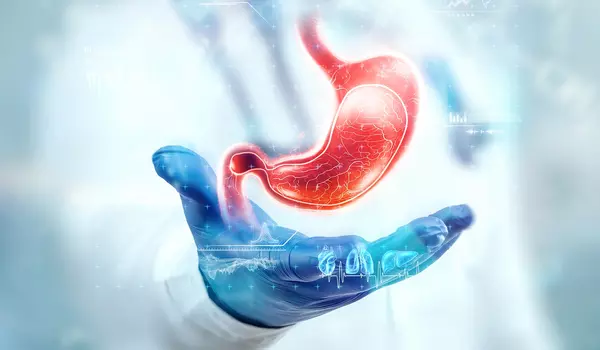Bariatric surgery involves limiting how much food the stomach can hold, usually with the use of a gastric band wrapped around the stomach or a gastric bypass that connects the top part of the stomach to the small intestine. Both methods mean that the patient does not need to eat as much to feel full, and the gastric bypass reduces the number of calories absorbed from food.
A new study of obese adults with nonalcoholic fatty liver disease (NAFLD) and morbid obesity (body mass index > 40) found that those who underwent bariatric surgery had far fewer extreme cardiovascular events in the future.
A Rutgers University study of obese adults with nonalcoholic fatty liver disease (NAFLD) and morbid obesity (BMI > 40) found that those who underwent bariatric surgery had far fewer extreme cardiovascular events in the future.
The Rutgers team, along with collaborators from Ohio State University, reported their findings in JAMA Network Open, stating that obese patients undergoing bariatric surgery were nearly 50% less likely to develop adverse cardiovascular events such as heart attacks, angina, or strokes.
The findings provide evidence in support of bariatric surgery as an effective therapeutic tool to lower elevated risk of cardiovascular disease for select individuals with obesity and NAFLD.
Vinod K. Rustgi
“The findings provide evidence in support of bariatric surgery as an effective therapeutic tool to lower elevated risk of cardiovascular disease for select individuals with obesity and NAFLD,” said Vinod K. Rustgi, Distinguished Professor of Medicine, clinical director of Hepatology and director of the Center for Liver Diseases and Liver Masses at Rutgers Robert Wood Johnson Medical School. “These finding are tremendously impactful for many reasons.”
Heart disease is the leading cause of death for both men and women in the United States, regardless of race or ethnicity. According to the Centers for Disease Control and Prevention, approximately 697,000 people in the United States died from heart disease in 2020.
NAFLD and its more advanced form, NASH, are both rapidly increasing causes of liver disease that can affect people who consume little to no alcohol. The condition is more common in people with obesity and type 2 diabetes because too much fat is stored in liver cells, causing an inflammatory state.

Researchers used the MarketScan Commercial Claims and Encounters medical insurance database to analyze outcome data from 2007 to 2017. There were 86,964 adults between the ages of 18 and 64 with obesity and NAFLD among the 230 million people covered by the study. The study group consisted of 68 percent females, 35 percent had bariatric surgery, and 65 percent received nonsurgical care.
Patients undergoing bariatric surgery had a 49% lower risk of developing major cardiovascular events such as heart attacks, heart failure, or ischemic strokes. They were also significantly less likely to have angina, atherosclerotic events, or arterial blood clots. The association between bariatric surgery and risk reduction of developing cardiovascular disease has not been studied to this level of detail before, the researchers said.
There is mounting evidence that bariatric surgery, due to the weight loss it induces in patients, provides long-term health benefits. A study conducted by Rustgi and colleagues, which was published in the journal Gastroenterology in March 2021, found that bariatric surgery can also significantly reduce the risk of cancer, particularly obesity-related cancers, in obese people with NAFLD. Colorectal, pancreatic, endometrial, thyroid, multiple myeloma, and hepatocellular carcinoma were among the cancers included.
“Although bariatric surgery is a more aggressive approach than lifestyle changes, it may be associated with other benefits such as improved quality of life and a lower long-term health care burden,” Rustgi said.
Bariatric Surgery in NAFLD Tied to Lower Heart Disease Risk @MichaelAlbertMD @DrNadolsky https://t.co/VflrBWLOGH
— David E. Albert, M.D (@DrDave01) October 7, 2022
















